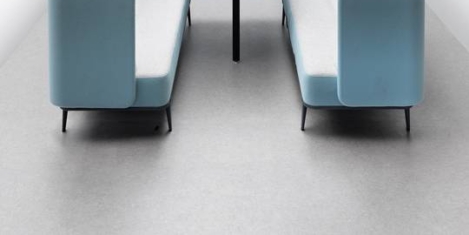September 7, 2016
Working from home just as unproductive and frustrating as working in an office 0
 It’s always good to see academic research supporting ideas that would appear pretty obvious but go against a widely accepted narrative. So we should all welcome the results of a new study from researchers at the London School of Economics and Political Science, which found that the perceived benefits of working from home disappear over time for both employees and organisations when homeworking is a full-time arrangement. The report concludes that while previous studies have demonstrated how home workers are more productive than office-based workers, the LSE study of more than 500 employees shows that on a long term basis, there are no differences between home and office workers. The reason, according to Dr Esther Canonico from LSE’s Department of Management, the lead author of the report, is that employees no longer see home working as a discretionary benefit or a privilege when it becomes the norm in an organisation.
It’s always good to see academic research supporting ideas that would appear pretty obvious but go against a widely accepted narrative. So we should all welcome the results of a new study from researchers at the London School of Economics and Political Science, which found that the perceived benefits of working from home disappear over time for both employees and organisations when homeworking is a full-time arrangement. The report concludes that while previous studies have demonstrated how home workers are more productive than office-based workers, the LSE study of more than 500 employees shows that on a long term basis, there are no differences between home and office workers. The reason, according to Dr Esther Canonico from LSE’s Department of Management, the lead author of the report, is that employees no longer see home working as a discretionary benefit or a privilege when it becomes the norm in an organisation.
















 A skim through workplace features in the media and you’d be forgiven for thinking that the traditional office is no longer with us. According to the narrative, we’re all now 20-somethings, working in open-plan warehouses, with table football, bean bags and comfy sofas to lounge on, while drinking our custom-made soya lattes. When in actual fact, while more relaxed, fun and funky offices tend to make the headlines, the majority of people still work in a relatively traditional way, with their PC or laptop, a desk and an ergonomic task chair. What’s more, with an ageing workforce, we certainly aren’t all 20-somethings, with DWP (Department of Work and Pensions) figures revealing that the employment rate for people aged 50 to 64 has risen by 14 per cent in the last 30 years, and doubled for over 65s. So designing with just the youngsters in mind simply doesn’t add up. Recent research by the Senator Group, backs up this view.
A skim through workplace features in the media and you’d be forgiven for thinking that the traditional office is no longer with us. According to the narrative, we’re all now 20-somethings, working in open-plan warehouses, with table football, bean bags and comfy sofas to lounge on, while drinking our custom-made soya lattes. When in actual fact, while more relaxed, fun and funky offices tend to make the headlines, the majority of people still work in a relatively traditional way, with their PC or laptop, a desk and an ergonomic task chair. What’s more, with an ageing workforce, we certainly aren’t all 20-somethings, with DWP (Department of Work and Pensions) figures revealing that the employment rate for people aged 50 to 64 has risen by 14 per cent in the last 30 years, and doubled for over 65s. So designing with just the youngsters in mind simply doesn’t add up. Recent research by the Senator Group, backs up this view.
 The corporate real estate profession will be influenced, disrupted and transformed in the years ahead by a powerful combination of forces that are re-shaping business strategy and operations, consumer preferences, and how and where people want to live and work, according to a new report from CoreNet Global.
The corporate real estate profession will be influenced, disrupted and transformed in the years ahead by a powerful combination of forces that are re-shaping business strategy and operations, consumer preferences, and how and where people want to live and work, according to a new report from CoreNet Global. 

 1 The next big thing in office design is not what you think but is certainly a sign of the times, according to a story in Inc; it is
1 The next big thing in office design is not what you think but is certainly a sign of the times, according to a story in Inc; it is 
 There is a lurid headline in today’s Telegraph proclaiming that ‘Working in an office is as bad as smoking’. It’s been picked up by a number of other news outlets, has been splashed all over search engines and will no doubt join
There is a lurid headline in today’s Telegraph proclaiming that ‘Working in an office is as bad as smoking’. It’s been picked up by a number of other news outlets, has been splashed all over search engines and will no doubt join 








August 17, 2016
Do people really matter when we design workplaces? 0
by Steve Maslin • Comment, Events, Facilities management, Workplace design
(more…)